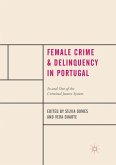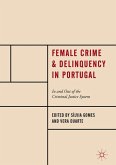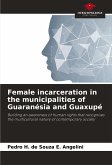This book set out to investigate how socio-cultural factors interact to influence women's involvement in drug trafficking. As such, this research seeks to contribute to public security policies, given that female criminality, especially the involvement of women in drug trafficking, is marked by peculiarities and vulnerabilities that must be observed. In order to achieve the objectives of the study, the methodology used was predominantly qualitative, with a survey of data on the socio-economic profile of women prisoners, a literature review and interviews with women imprisoned for drug trafficking. This approach made it possible to understand the perception of those involved about their situation of vulnerability and their entry into the world of drug trafficking. The study showed that the main motivating factors pointed out by the interviewees' life histories for their entry into drug trafficking are: economic hyposufficiency and the influence of third parties.
Bitte wählen Sie Ihr Anliegen aus.
Rechnungen
Retourenschein anfordern
Bestellstatus
Storno








